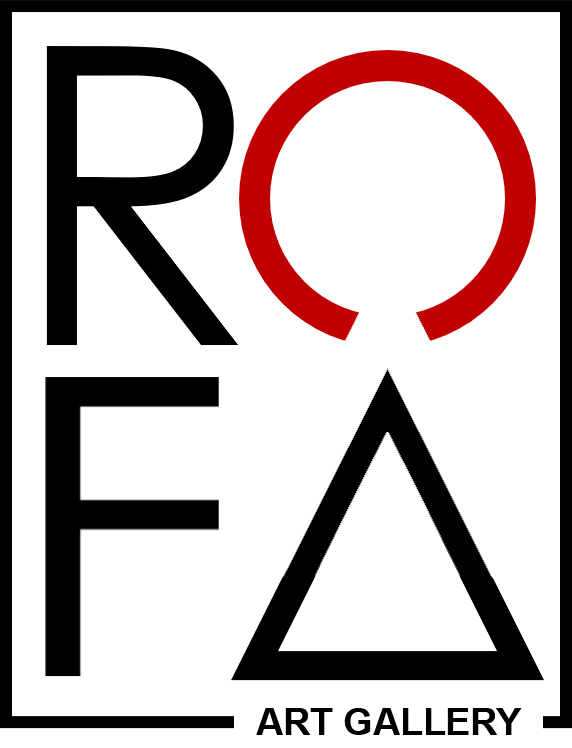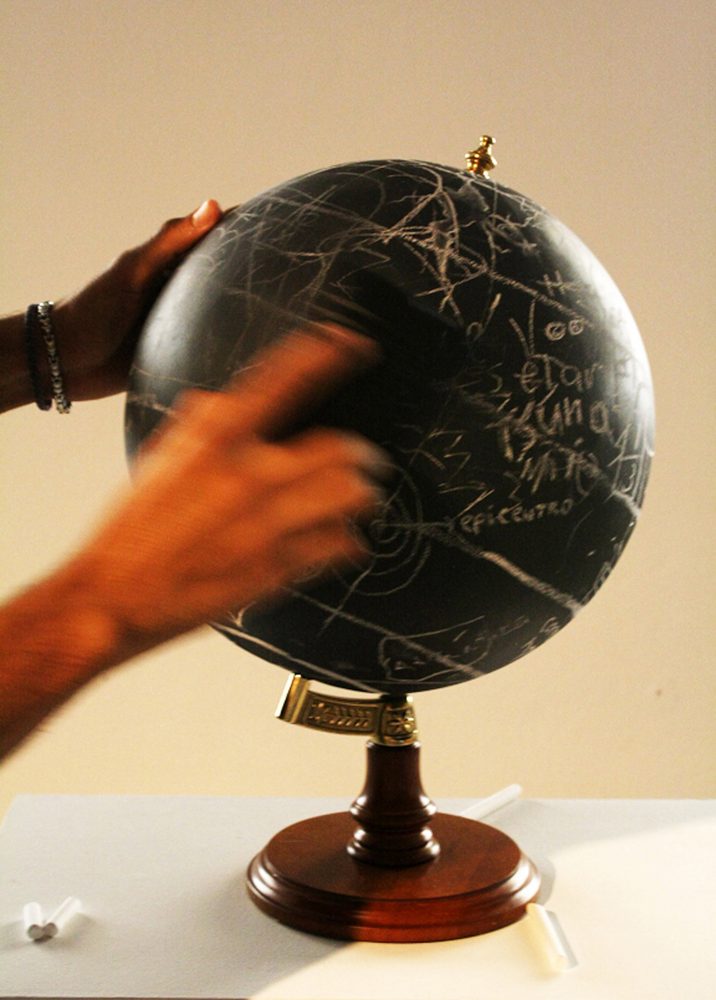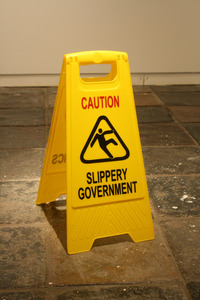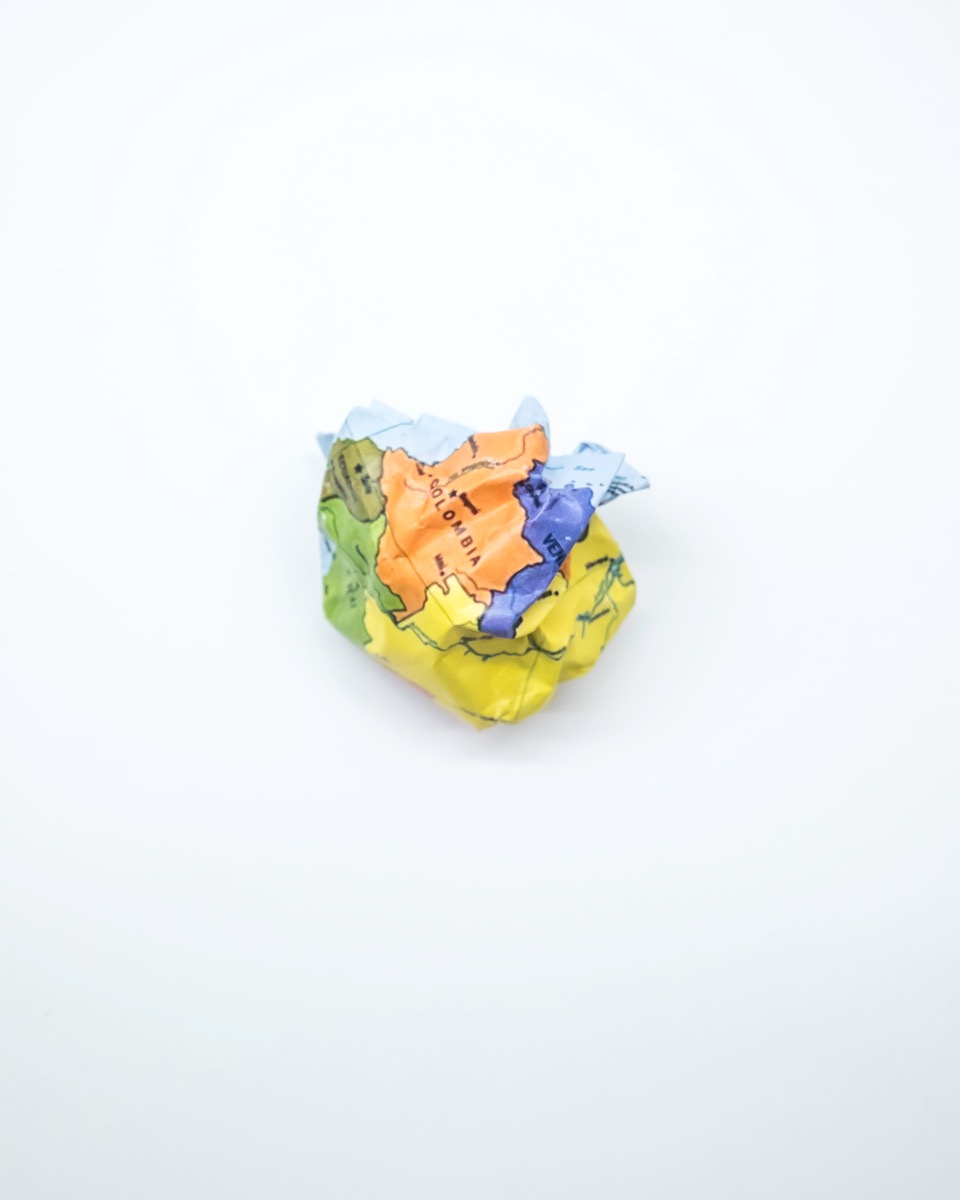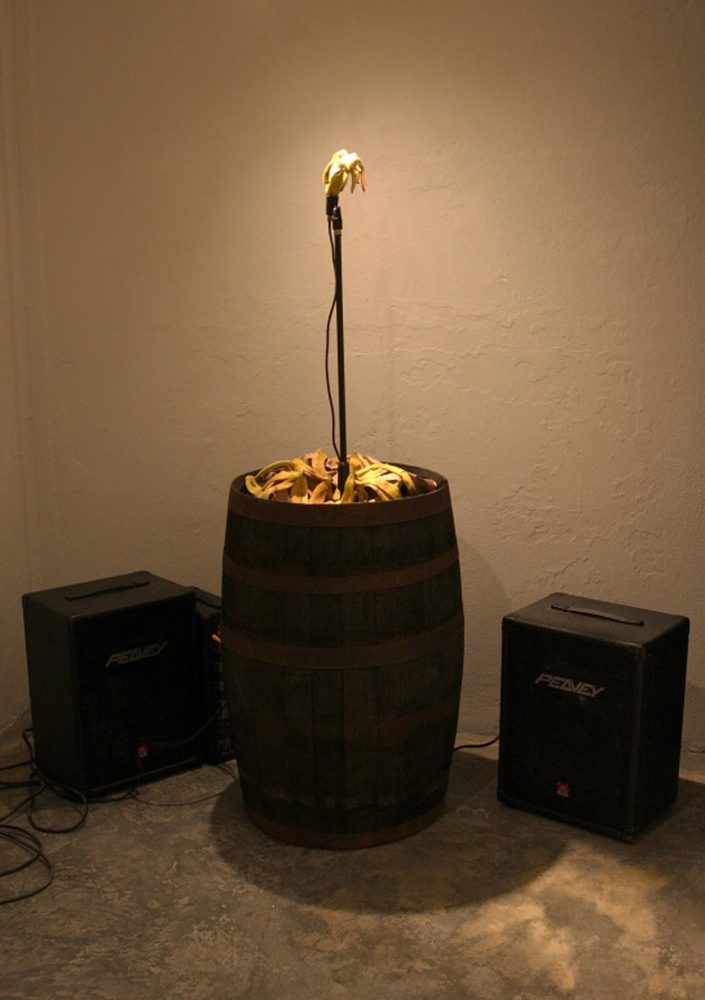Karlo Andrei Ibarra
He employs a wide variety of media that refer to conceptual art and mass media while addressing issues of social, political, cultural and geographic boundaries. His practice relies on social and political cognitions gathered from personal investigations, which draw correlations between individual and national identities and make larger observations respective to a global community.
Interrupted geography is composed of a series of paintings in which the artist uses the process of tearing continental maps in this case from Latin America and arranges them in the pictorial space, generating points of tension that on the one hand can be associated with the way in which we think about the geography that we already know and, in turn, generating associations with the history of abstraction.
A paper crumples when trying to transcribe, think, cancel as part of automatic human operations. The idea of resenting wrinkled Latin American maps redefines geography and geopolitical boundaries by exerting a new reading in relation to physical and mental boundaries. Finally these new continental versions do not try to discard the idea of he world rather reconfigure it, rethink it from the idea of riction and accident generating new accidental topographies.
“I employ a wide variety of media that refer to conceptual art and mass media while addressing issues of social, political, cultural and geographic boundaries. My practice relies on social and political cognitions gathered from personal investigations, which draw correlations between individual and national identities and make larger observations respective to a global community.”
BIO
Karlo Andrei Ibarra (Puerto Rico, 1982)
He holds a Baccalaureate in Plastic Arts with concentration in Painting of the School of Plastic Arts and Design of Puerto Rico. Currently, he works as an artist and cultural manager. He is also cofounder of the contemporary art space in Santurce, Puerto Rico, called Km 0.2. His proposal addresses directly to Puerto Rico’s subordinate position as an unincorporated territory of the United States, and aesthetically examines the implications of this association.
He has exhibited his work in Cuba, El Salvador, Guatemala, Panama, Costa Rica, Mexico, Peru, Chile, Argentina, Brazil, Colombia, Dominican Republic, Canada, Netherlands, Spain, Romania, Sweden, Poland, Norway, Taiwan, China, Romania, and cities as San Francisco, Chicago, Miami, Denver, Los Angeles, New York, Boston among others
